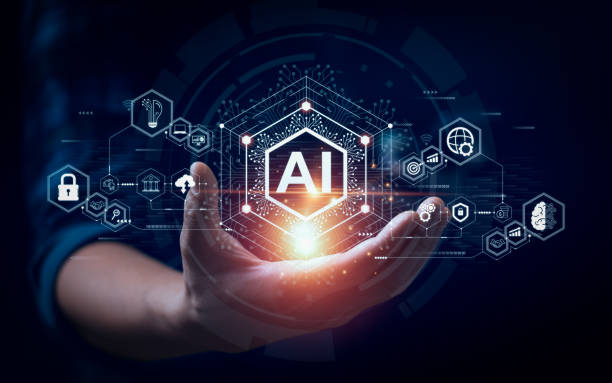
Artificial Intelligence (AI) is reshaping our world at an unprecedented pace and its impact on our lives is becoming hard to ignore. But what does the term ‘Artificial Intelligence’ encompass and is it really going to transform our world in the way that we think?
What is Artificial Intelligence?
Although many of us picture AI as being a super robot that will one day take over the world, in reality most AI that we see in applications today are just machine learning algorithms that are capable of analysing large amounts of data in a short period of time. These are generally focused on performing specific tasks and still require input from humans to provide the relevant data or commands. We are a long way from AI with intelligence equal to humans, capable of understanding and learning intellectual tasks, and an AI model that surpasses human intelligence is (fortunately) still the stuff of fantasy.
However, AI has become an integral part of our daily lives, often working behind the scenes to enhance our experiences. Here are some common examples:
1. Virtual Assistants: Voice activated assistants such as Siri and Alexa use AI to understand and respond to voice commands, providing publicly available information and controlling smart home devices.
2. Recommendation Systems: Online shopping platforms like Amazon use AI to recommend products based on your browsing and purchase history, whilst streaming services like Netflix and Spotify employ AI to suggest content tailored to your preferences.
3. Image and Speech Recognition: Hands-free calling using voice commands has been a reality for some time but personal devices such as tablets and smartphones can now use AI-powered facial recognition to securely unlock the devices.
4. Social Media and Advertising: Social media platforms utilise AI to filter content and personalise the user experience. AI also helps deliver targeted advertisements based on user interests and demographics.
5. Healthcare: AI-powered systems can analyse medical images and data to assist in diagnosing diseases, whilst the drug discovery industry is utilising the power of AI to analyse vast amounts of published data to help identify new drugs or repurpose existing ones.
6. Transportation: AI is at the core of autonomous vehicles, enabling them to perceive their environment and make decisions. AI-powered systems are also employed to optimise traffic flow by analysing real-time traffic information and suggesting alternative routes.
7. Fraud Detection: AI algorithms can identify fraudulent transactions by analysing patterns in financial data.
These are just a few examples of how AI is already integrated into our daily lives. As technology continues to advance, we can expect to see even more innovative and widespread applications of AI in the future.

Should the Alarm Bells be Ringing?
There’s no denying that AI is a powerful tool that has the potential to significantly improve our day to day lives. However, it’s important to be aware of its potential impacts and to stay informed about how its development might affect us in different ways:
- Ethical Considerations: As AI becomes more integrated into our lives, ethical questions about data privacy will become increasingly important. Also, more and more organisations will make decisions about us based on rigid algorithms, which can adversely impact credit scores, healthcare options and insurance policies.
- Potential Job Disruption: There are concerns that AI could lead to job displacement due to the increased ability to automate certain tasks. However, it also creates opportunities for new roles. Adaptability and upskilling will be crucial in preparing for future advances in automation.
- Economic Impact: AI has the potential to boost economic growth, but it’s essential to ensure that the benefits are distributed fairly. The necessary investment required to further develop AI can only be justified if the economic benefits are apparent to the economy as a whole.
- Global Competition: The race to develop and implement AI technologies will shape the global economic and political landscape. Currently, AI development is in the hands of a few large tech companies but it is dangerous to allow them to have a monopoly in this field. Real innovation and progress that benefits everyone is often only achieved by partnering with startups and research organisations.
In essence, AI is a powerful tool that has already had a positive impact on our day to day lives. However, it’s important to consider some of the wider implications of the technology and the potential pitfalls that lie ahead. By understanding AI and its implications, we can all be better prepared for the future and truly harness its benefits without becoming slaves to technology.
For Further Information or advice, please contact the Magikos IT Team or fill in the form below and we will contact you.
Tel: 01344 204019
Email: [email protected]